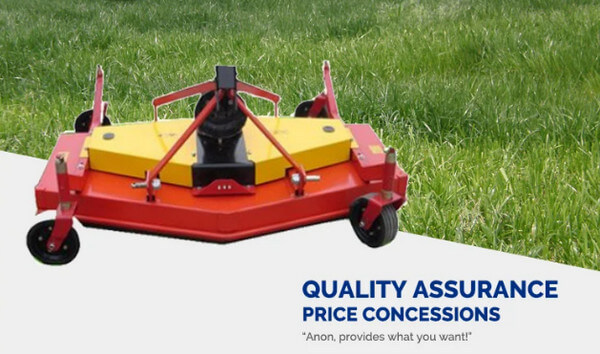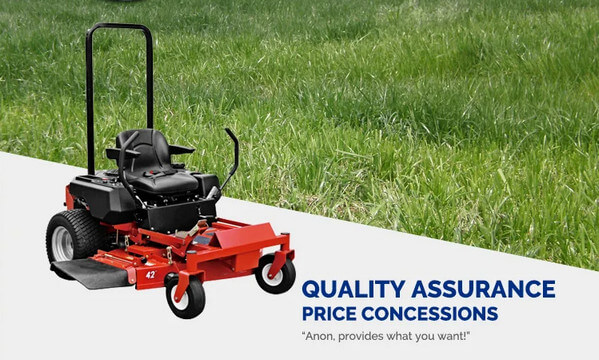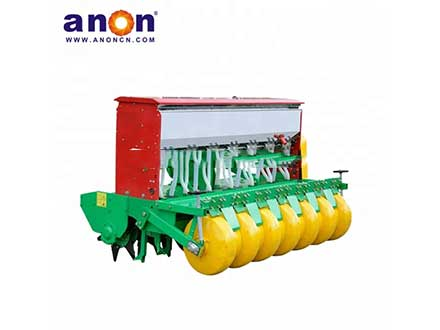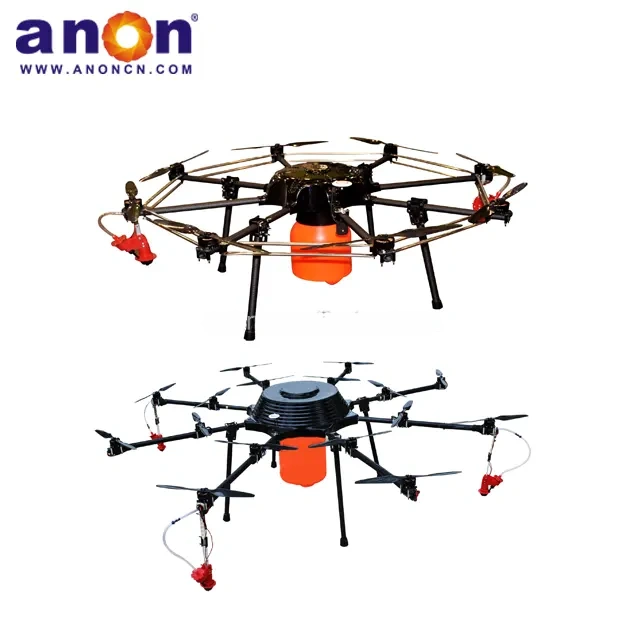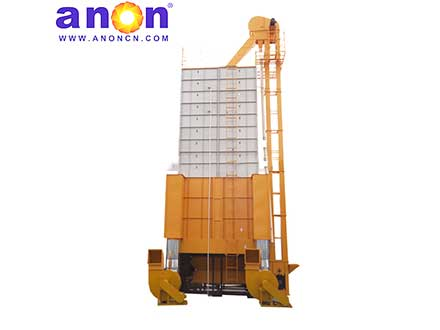Introduction
In modern society, lawn mowing has become an important task in the daily maintenance of many homes and institutions.
In order to meet different needs, many types of lawn mowers have appeared on the market.
Among them, zero turn vs riding mower are two common options.
Below, ANON will introduce the differences between these two lawn mowers in detail.
To help consumers better understand lawn mower equipment, and at the same time choose products that meet their needs.
Zero-turn vs Riding Mower
A zero-turn mower is a uniquely designed lawn mower that uses two steering levers to control direction. By pushing and pulling the levers forward or backward, the operator can make the mower turn 360 degrees on the spot, providing exceptional maneuverability. It is typically composed of a cutting deck and a drive system, allowing for fast and efficient mowing.
A riding lawn mower, on the other hand, resembles a small tractor and is steered with a steering wheel for flexible control. Most models feature rear-wheel drive with front-wheel stabilization, and some are equipped with differential locks and anti-slip tires for greater stability.
Both zero-turn mowers and riding lawn mowers are common tools for lawn maintenance. Each has its own advantages and disadvantages, making them suitable for different needs.
Advantages and Disadvantages
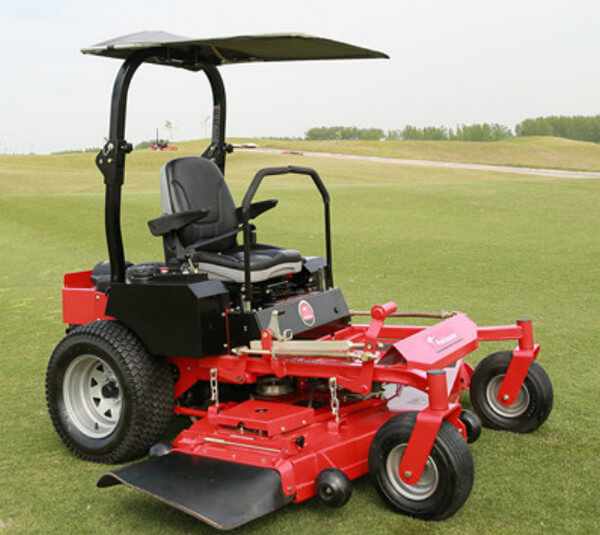
Next, let’s compare the advantages and disadvantages of zero-turn mowers and riding lawn mowers.
Zero-turn mowers
The advantage of a zero-turn mower lies in its highly flexible steering system, with a turning radius that is virtually zero. This allows it to maneuver freely in tight spaces and achieve high mowing efficiency. It is especially suitable for complex terrains with trees, flower beds, or other obstacles, making it easy to operate. Its excellent maneuverability helps operators save time and effort while improving overall mowing efficiency and comfort.
However, zero-turn mowers also have some drawbacks. Since they rely on manual control with levers, they require more physical effort from the operator, which can lead to fatigue during long periods of use. In addition, zero-turn mowers are usually more expensive than traditional lawn mowers.
Riding lawn mowers
The advantage of a riding lawn mower is that operating it feels similar to driving a car, with steering controlled by a wheel. This greatly reduces physical strain during operation and makes it especially suitable for mowing sloped or uneven lawns. Riding mowers are also easy to operate and require less effort, while generally being more affordable compared to zero-turn mowers.
That said, riding lawn mowers also have limitations. Due to their steering design, they lack the same level of flexibility in tight or complex areas, making turning in narrow spaces more difficult. Since steering relies on the wheel, operators often need to turn it frequently, which can affect long-term comfort.
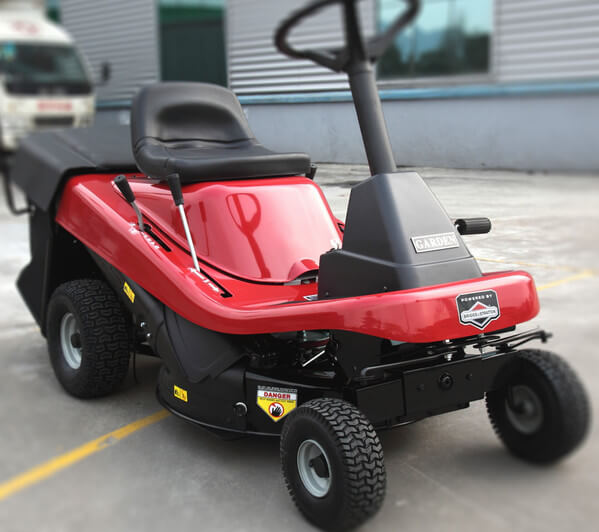
The advantage of a riding lawn mower is that the driver can sit on the machine.
It reduces the physical burden during operation and is especially suitable for mowing large areas of lawn.
Riding lawn mowers usually have a wider cutting width and higher power,
Can quickly complete the lawn mowing task. Additionally, riding lawn mowers are easy to operate and do not require much effort.
Compared to zero-turn lawn mowers, the price is higher.
In addition, due to the needs of driving operations, for small spaces and complex terrain,
Riding lawn mowers may lack flexibility and have difficulty turning in tight spaces.
Since the steering system uses steering wheel control, the operator needs to turn the steering wheel frequently, affecting comfort.
Which lawn mower is better for you
Which one is best, a zero-turn mower vs a riding lawn mower?
When choosing between a zero-turn mower and a riding lawn mower, it ultimately depends on your specific needs.
If you need to mow large, irregular areas with many obstacles, a zero-turn mower is an excellent choice. Its maneuverability allows you to easily handle complex terrain and navigate around trees, flower beds, and other obstacles with precision.
On the other hand, if you are maintaining small to medium-sized lawns that are relatively flat, well-shaped, or have only slight slopes, a riding lawn mower will make the job easier and more efficient. It is particularly effective in wide, open spaces, combining both mowing and riding convenience. With its simple operation, it reduces physical strain and offers a more relaxed, enjoyable mowing experience.
Summarize: Zero turn vs riding mower
To sum up, the functions of zero-turn lawn mowers and riding lawn mowers are:
There are differences in performance and applicable scenarios, and the choice depends on your specific needs.
Depending on the size and complexity of your lawn, and your considerations regarding flexibility and price,
It is important to choose the lawn mower model that suits you.
If you have any questions about our lawn mower equipment, you can directly leave a message for online consultation.
I believe ANON will provide you with a satisfactory solution.
FAQ
1. Are zero-turn mowers better than riding mowers?
Zero-turn mowers are better suited for flat lawns with more obstacles, offering faster mowing speeds and greater maneuverability. In contrast, riding mowers (or lawn tractors) are better suited for hilly or sloped terrain, offer more flexible attachments for tasks like hauling and snow plowing, and are generally less expensive.
2. When shouldn’t you buy a zero-turn mower?
If your lawn has a steep slope or an uneven surface, avoid buying a zero-turn mower, as they can easily tip over and become uncontrollable on such terrain. Furthermore, zero-turn mowers have a higher learning curve and are more expensive than traditional mowers. They can’t be operated in a relaxed position, making them unsuitable for those unfamiliar with manual controls.


